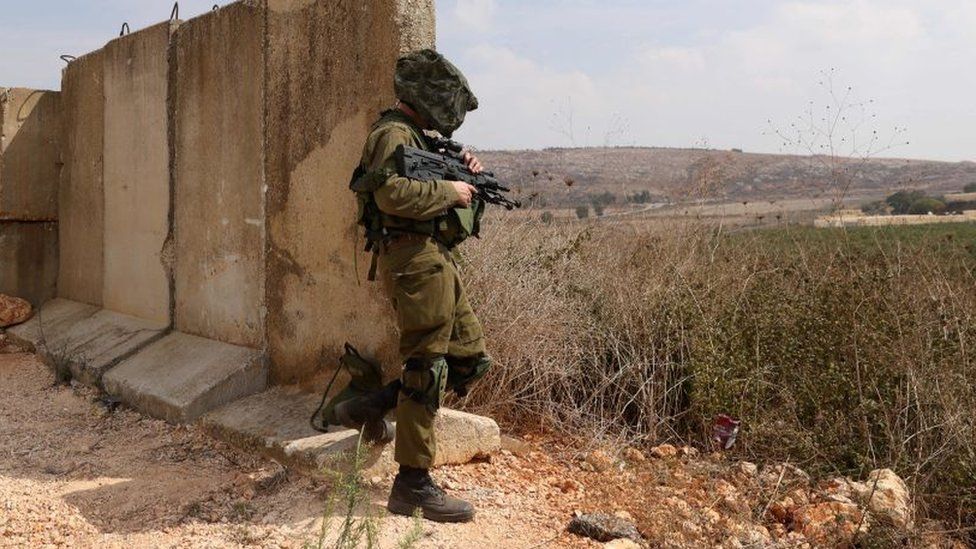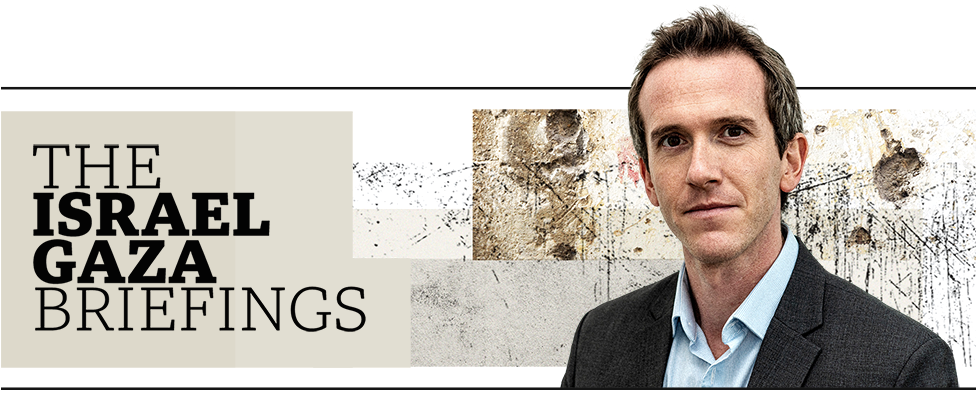
Since the start of the Israel-Gaza war, following the Hamas attack of 7 October, the overriding fear has been that the conflict could spill over into something even deadlier.
The day after the Hamas assault, Lebanon’s most powerful armed group Hezbollah fired guided rockets and shells into Israel in solidarity with Hamas, prompting Israeli drone and artillery retaliation.
Could Israel, traumatised and vulnerable, with a prime minister fighting for political survival, decide the threat from across its northern border in Lebanon needs to be neutralised?
The fear has been that Benjamin Netanyahu’s government might be tempted into a second front in the war, against Hezbollah – which, like Hamas, is intent on destroying the Jewish state. And if so, would it draw in Iran, Hezbollah’s key patron in the region and sworn enemy of the US?
This week Israel carried out more air strikes on the Bekaa valley, deep into Lebanon, taking the death toll in Lebanon since the start of the conflict to more than 240.
In retaliation, Hezbollah fired a barrage of 100 Katyusha rockets on northern Israel, its heaviest attack since the war began, with targets including Israeli army bases in the Golan Heights. At least 17 Israelis have been killed in attacks from Lebanon and Syria since October.
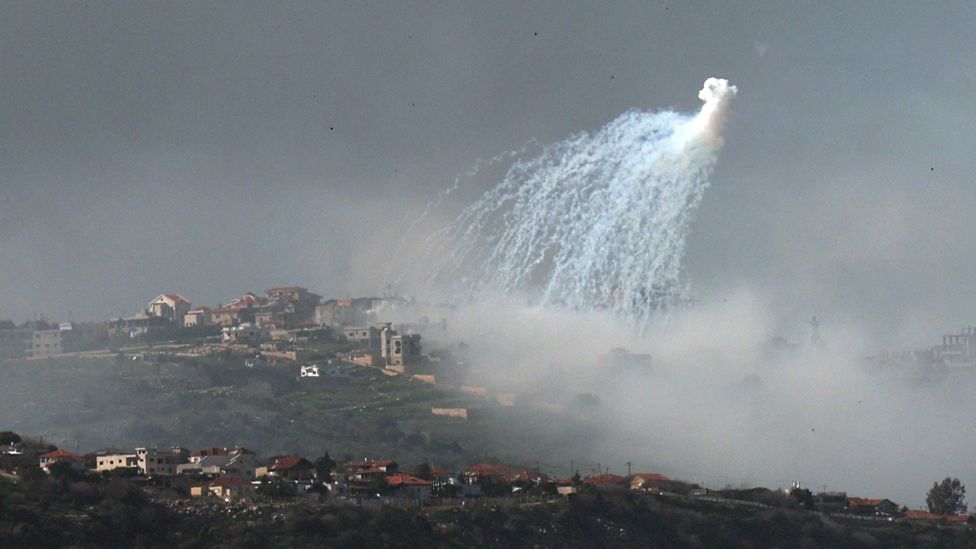
The rockets this week prompted an angry post by Israel’s far-right National Security Minister Itamar Ben-Gvir, addressed to the Defence Minister Yoav Gallant: “The military is your responsibility. What are you waiting for? We have to start responding, attacking – war, now!”
Last month, Chief of Staff of the Israel Defence Forces (IDF) Herzi Halevi said: “We are now focusing on being prepared for war in the north.”
For long, it seemed that the clashes on the border were carefully calibrated around unspoken red lines to avoid escalation into all-out war.
Hassan Nasrallah, the leader of Hezbollah, has not called for it. Memories in Lebanon are still fresh of the disastrous 2006 war with Israel, which left more than 1,000 Lebanese dead.
And Israel knows that Hezbollah’s military capability is far greater than that of Hamas.
Holding back – just
A poll published in the country’s Maariv newspaper last month showed that 71% of respondents favoured a large-scale military operation to drive Hezbollah back.
Sarit Zehavi lives close to the Lebanese border and heads the Alma research centre, which specialises on the threat there. She says Hezbollah’s aim is “to drag Israel into war without actually initiating it”.
But, she argues, Israel is not looking for all-out confrontation. “Israel’s interest is to avoid full scale war – but achieve an improved security situation, while damaging Hezbollah’s brigades as much as possible. For Israel, it is about choosing the least worst option: we understand the capability of Hezbollah here and the cost of war.”
She believes that Hezbollah’s use of rockets, which have a longer range than anti-tank missiles used previously by the group, is evidence of a shift in the group’s military tactics and capability.
“Hezbollah takes into consideration the cost of a war, but they don’t look into the near future – they look years ahead.”
“They have already gained by forcing the evacuation of tens of thousands of Israelis,” she adds – about 60,000 Israelis living in communities close to the border have fled the fighting since October, the largest such displacement in Israeli history. Around 100,000 Lebanese residents have also been moved from the other side of the border.
To allow for the evacuees to return, Israel wants to push Hezbollah’s forces back beyond the Litani river, which marks a buffer zone of sorts between Beirut and the Israeli border.
As part of the agreement to end the 2006 war, the area south of the Litani was supposed to be clear of military presence except for that of the Lebanese army and UN forces – which Hezbollah has violated.
That’s been part of discussions with Amos Hochstein, the US Special Envoy, who has been repeatedly dispatched to the region to avert an escalation. But a deal on Hezbollah’s withdrawal and disarmament remains elusive.
So far, both Benjamin Netanyahu and Hezbollah appear to be holding back from the precipice. The Israeli army is already stretched in Gaza, without opening a new front – and a new wave of international tension.
And Hezbollah is in reactive mode, opting more for a lower-level war of attrition. But the real risk is miscalculation, and caving into competing pressures.
Mr Netanyahu is battered by the perception that he left his country vulnerable to the worst attack in its history, reviled by families of the hostages who want him to strike a deal to bring them back, and excoriated by the West over the mounting civilian casualties in Gaza.
The fear is that he may see expanding the fight in Lebanon as key to his political survival – and that Israel, in the wake of the 7 October attacks, would not countenance the continued threat on its northern front without taking military action.
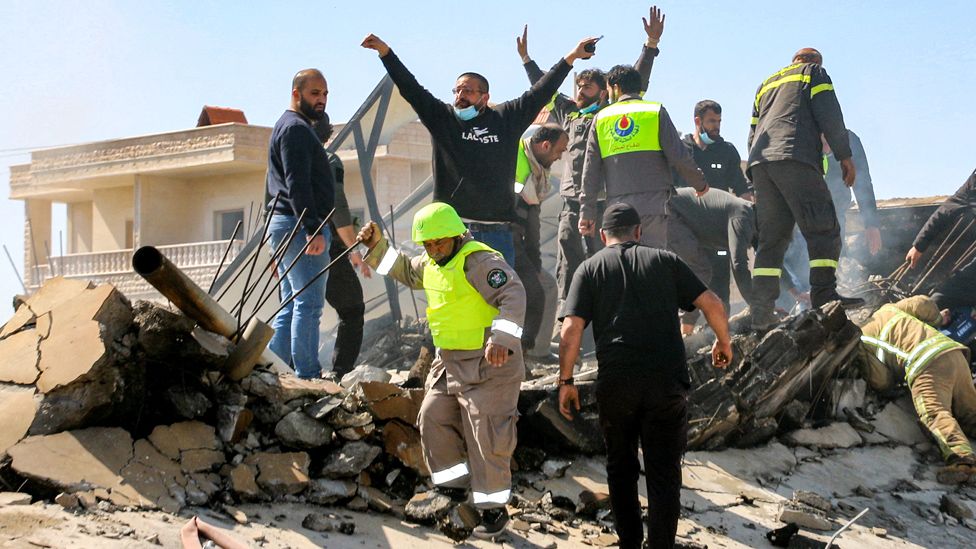
Professor Hilal Khashan, from the American University in Beirut, believes Israel’s relative restraint so far doesn’t tell the true story. “Netanyahu clearly wants war,” he says, pointing to Israel’s strikes on about 4,000 positions across Lebanon since October.
“He is finished politically and when the war stops, he will have to face his reckoning,” he says. “I don’t think he’ll give a damn about what the US or Europe will think – he has made up his mind on Hezbollah.”
A further, and potentially more serious, unknown would be the response from Iran, which relies on Hezbollah, its proxy in Lebanon, as a bulwark against Israel.
Since the Hamas attack, Tehran has flexed its muscles across the Middle East. Iran-backed groups have hit US military bases in Iraq and Syria, and Yemen’s Houthi rebels, aligned with Iran, have launched countless strikes on ships in the Red Sea. It has so far stopped short of an unfettered war. But major Israeli strikes on Hezbollah could change Tehran’s calculus.
In Lebanon, there is little appetite for full conflict with Israel, particularly among religious groups that don’t belong to the Shia branch of Islam to which Hezbollah belongs. “Non-Shias are almost unanimously opposed, and want Hezbollah to disarm,” says Professor Khashan.
But Shias are unhappy about the fighting too, he says. “By and large, they don’t want war either.”
Hassan Nasrallah has said that he will not agree to a ceasefire with Israel before there is a truce in Gaza. He is reported to have told an Iranian military leader last month that he did not want Iran to get sucked into a war with Israel or the United States – and that in the case of a full offensive with Israel, Hezbollah would fight on its own.
Still fear stalks those living on either side of a perilous border.
“Every night, I take the images of 7 October massacre with me to bed,” says Sarit Zehavi, “and every morning I wake and say ‘ok, the terrorists didn’t invade again last night’. It’s an existential threat in the deepest possible way.”

- Netanyahu is a survivor, but his problems are stacking up
- Biden treads carefully through Middle East minefield
- Gaza desperately needs more aid but agencies can’t cope
- Israel-Gaza war: Death and Israel’s search for ‘total victory’
- What are routes out of this ‘dangerous moment’ in Middle East?
- Huge push for Gaza aid – but little hope for those suffering
- Iran’s sudden strikes show just how perilous region has become
- Tough choices for Israel in US’s Middle East vision
- Huge challenges for Israel on its vague ‘day after’ Gaza plan
- Stakes are immense as Biden presses Israel to change course
- Hamas support soars in West Bank – but full uprising can still be avoided
- The status quo is smashed. The future is messy and dangerous
- Bowen: US sets clearer red lines for Israel as ceasefire ends
- When this truce ends, the decisive next phase of war begins
Related Topics
-
-
14 February
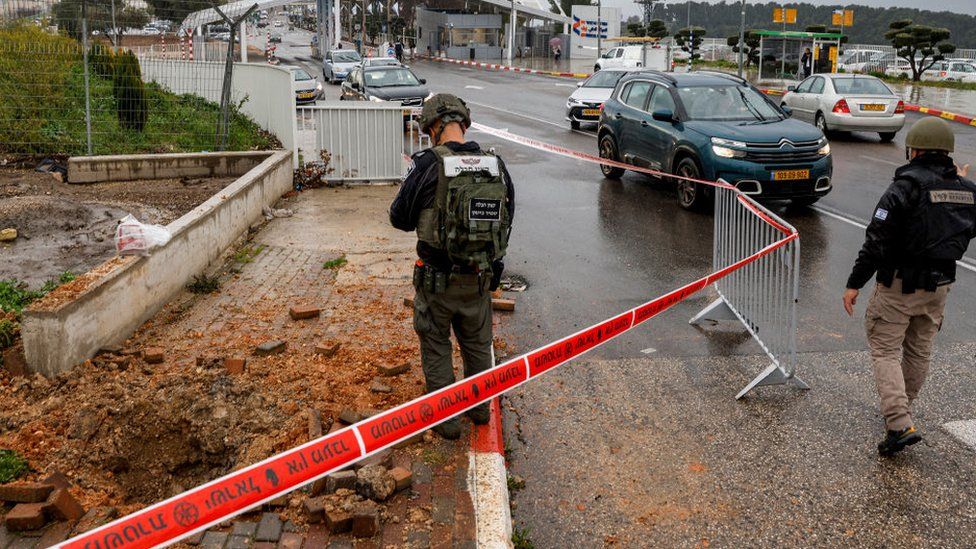
-
-
-
3 November 2023
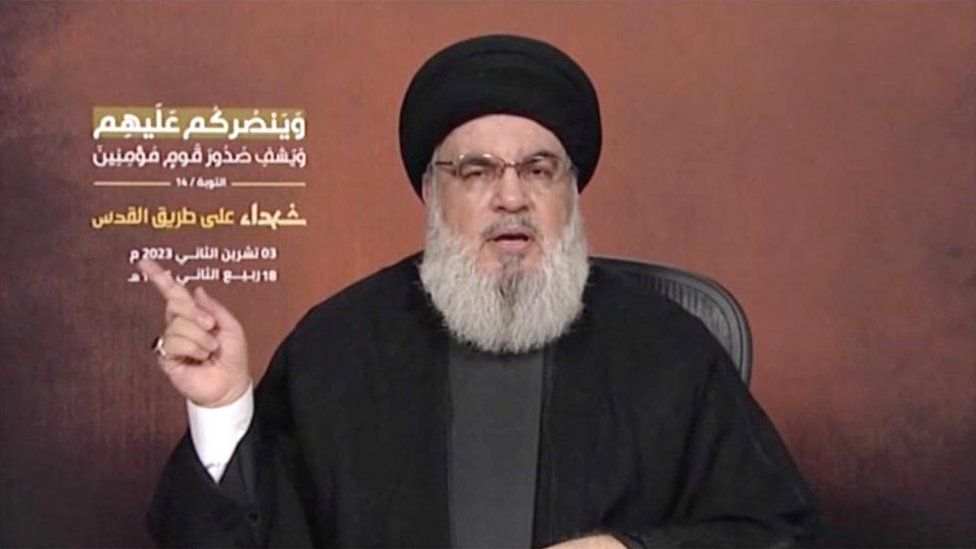
-
Source: bbc.co.uk


